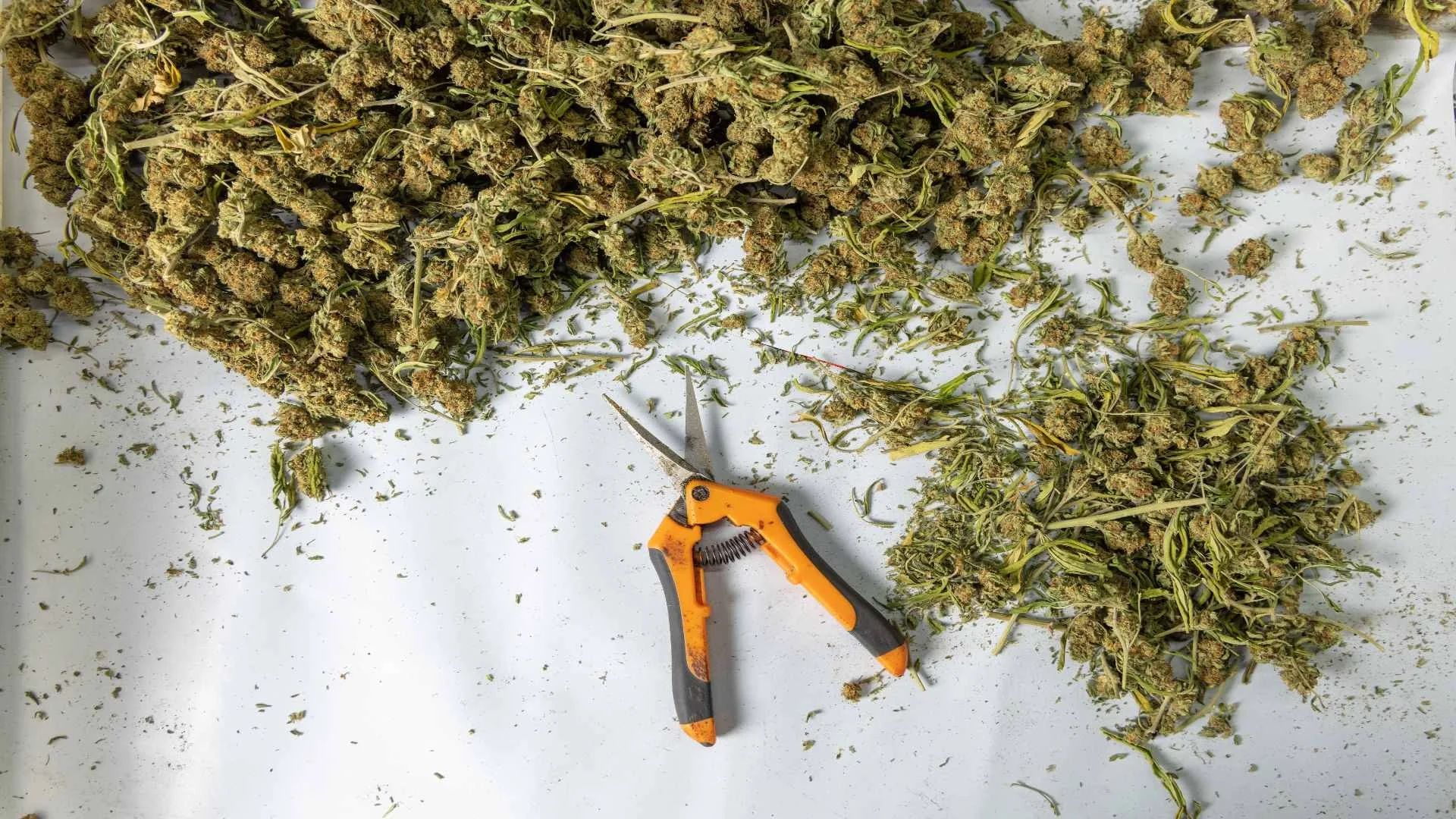Mental Health
How to Stop Smoking Weed

Struggling with cannabis dependence? Discover how to stop smoking weed through proven strategies, lifestyle changes, and supportive recovery approaches.
How long does withdrawal last when you stop smoking weed?
Withdrawal usually begins within 24 to 72 hours after your last use. Symptoms peak around day three and generally fade within two weeks, though lingering effects like insomnia or anxiety may last a bit longer in some cases.
What are effective ways to manage cravings?
Managing cravings involves using techniques like "delay and distract," removing triggers from your environment, engaging in healthy routines, staying active, and reaching out to supportive friends, family, or professionals who understand your recovery goals.
Should I quit cold turkey or gradually taper?
Both cold turkey and tapering can be effective depending on your usage pattern and comfort level. At The Edge Treatment Center, we help you choose the safest, most effective approach based on your individual needs and history of cannabis use.
Can therapy help me stop using marijuana?
Absolutely. Therapy offers a safe space to explore the reasons behind your cannabis use, such as stress or trauma. It also helps you build healthier coping mechanisms and supports long-term recovery through accountability and emotional resilience.
What support options are available for maintaining sobriety?
Long-term sobriety is strengthened through individual counseling, group therapy, peer support programs like Marijuana Anonymous, and structured aftercare. The Edge Treatment Center provides all of these resources to ensure you stay supported well beyond your initial treatment.
Are you struggling to figure out how to stop smoking weed? You’re not alone—many people find themselves caught in a cycle of dependence, even when they want to quit.
Marijuana use may start as a way to relax or escape, but over time, it can impact your mental health, relationships, and sense of control.
The good news is that recovery is possible. With the proper support and a personalized plan, you can break free from marijuana dependence and take back your life, one step at a time.
Why Quitting Weed Is Hard

Quitting marijuana isn’t just about willpower—it’s about overcoming physical, emotional, and psychological dependence. Many people start using cannabis casually, but over time, it can become a daily habit. When you try to stop, your body and brain respond with withdrawal symptoms that can be uncomfortable and discouraging.
Common Withdrawal Symptoms
Irritability or Mood Swings: You may find yourself feeling easily annoyed or overly sensitive to emotions. These mood changes are a result of your brain adjusting to the absence of THC, the main psychoactive component in cannabis.
Trouble Sleeping or Vivid Dreams: Insomnia is common during withdrawal, often accompanied by intense or unusual dreams. These changes in sleep are temporary but can be disruptive and frustrating.
Anxiety or Restlessness: Many people experience heightened anxiety or an inability to relax. This happens because the calming effects of marijuana are no longer present, revealing underlying stress or unease.
Decreased Appetite or Nausea: THC stimulates appetite, so quitting may lead to a lack of interest in food or mild nausea, especially in the first few days.
Cravings for Marijuana: Psychological cravings are intense, particularly when exposed to triggers like certain people, places, or routines. These urges tend to decrease in intensity with time and support.
These symptoms typically start within 24 to 72 hours after your last use. They peak around day three and can linger for up to two weeks or longer, depending on how long and how often you’ve used marijuana. For heavy or long-term users, the psychological impact—like anxiety, depression, or a loss of motivation—can persist for even longer.
Habitual and Emotional Triggers
Another challenge is the role marijuana plays in your daily life. You may associate smoking weed with stress relief, socializing, or relaxing. It can become a coping mechanism, making the idea of quitting feel like losing a part of yourself. And when those triggers remain—your smoking circle, specific environments, or even boredom—quitting becomes even more difficult without support.
Why Going It Alone Often Fails
While some people attempt to quit weed on their own, many quickly realize how difficult it is without guidance or support. Trying to power through withdrawal and cravings without a structured plan can lead to frustration and relapse.
Misinterpreting Symptoms and Losing Motivation
One significant risk of quitting alone is unmanaged withdrawal. Without knowing what to expect, it’s easy to mistake common symptoms—like irritability or sleep disturbances—as personal failure or a sign that quitting isn’t possible. This can lead to a cycle of quitting and restarting that takes a toll on your mental health.
Mental Health and Coping Deficits
There’s also the issue of underlying mental health challenges. Many people use marijuana to cope with anxiety, depression, trauma, or other emotional pain. When you stop using, those issues can resurface more intensely. Without professional help, it’s hard to develop healthier ways of managing them.
Lack of Accountability and Structure
Lastly, going it alone lacks accountability. Without someone to check in with or a team to lean on, motivation can fade. Having a support system is crucial—not just to get through the first few days, but to build lasting change. That’s where we come in.

We’re Here To Help You Find Your Way
Would you like more information about mental health or drug addiction? Reach out today.
How The Edge Treatment Center Can Help You Stop Smoking Weed
At The Edge Treatment Center, we understand that every person’s journey to recovery is unique. That’s why we offer personalized treatment plans tailored to your specific needs, challenges, and goals. If you’re ready to stop smoking weed, we’re here to walk with you every step of the way.
Comprehensive Assessment and Customized Planning
Your recovery starts with a thorough assessment. We take the time to understand your marijuana use history, mental health status, physical well-being, and personal goals. This helps us create a plan that fits you, not a generic program, but a truly individualized path to sobriety.
We’ll help you determine whether a gradual tapering approach or quitting cold turkey is better suited for your situation. Our team considers your history, preferences, and comfort level to make this process as manageable as possible.
Managing Withdrawal Symptoms
Withdrawal is a genuine concern, but with the proper support, it can be managed. Our clinical team is trained to help you cope with the symptoms of marijuana withdrawal safely and comfortably.
We incorporate practical strategies like:
Structured sleep and wake routines to improve rest
Nutritional support to stabilize mood and energy
Mindfulness and stress-reduction practices like deep breathing and guided meditation
Physical activity, such as yoga or walking, to reduce anxiety and lift mood
These may seem simple, but they’re powerful tools that support both your body and mind as you adjust to life without weed.
Addressing the Root Causes of Use
Marijuana use often masks deeper emotional or psychological issues. Our licensed therapists work with you one-on-one to explore what’s behind your dependence. Whether it’s stress, trauma, depression, or relationship challenges, we’ll help you build healthier coping skills that don’t rely on substances.
Group therapy is another key part of our approach. Sharing experiences with others in recovery helps you feel understood and supported. It also provides a sense of community, one of the most critical factors in long-term recovery.

Creating a Life Beyond Weed
Quitting weed isn’t just about stopping—it’s about building something better in its place. Our program includes relapse prevention planning that focuses on recognizing triggers, setting boundaries, and developing healthy habits to support long-term recovery. We’ll help you reshape your daily routine, find purpose, and re-engage with activities and relationships that bring you joy.
For those with co-occurring mental health conditions, we offer dual diagnosis treatment to address both issues simultaneously. This integrated approach ensures no part of your healing is overlooked.
Available Treatment Options
We offer a range of evidence-based treatment options designed to meet you where you are in your recovery journey. These include:
Outpatient Treatment: Ideal for individuals who require support while continuing their daily responsibilities. You’ll attend therapy sessions, groups, and workshops on a flexible schedule.
Intensive Outpatient Program (IOP): A step up from traditional outpatient care, IOP provides a more structured program with several sessions per week, offering both flexibility and intensity.
Partial Hospitalization Program (PHP): A full-day program for those who need more intensive support without residential care. PHP focuses on daily therapy, group counseling, and skill-building.
Dual Diagnosis Treatment: For clients facing both substance use and mental health challenges, our integrated approach ensures both are treated simultaneously for more effective, lasting recovery.
Aftercare and Alumni Support: Long-term success depends on ongoing support. We offer aftercare planning, alumni programs, and continued access to therapy and group meetings.
Ongoing Support for Long-Term Recovery
Recovery doesn’t end when you stop smoking weed. That’s why we provide continued support through aftercare planning. Whether it’s ongoing therapy, support groups, or check-ins with our team, we stay involved to help you stay strong.
You don’t have to go through this alone. If you or someone you care about is ready to quit marijuana, The Edge Treatment Center is here to help. With compassionate care, proven methods, and a plan built just for you, recovery is not just possible—it’s within reach.
Weed Taking Over Your Life? Let Us Help You Take It Back

Quitting weed is a powerful decision—one that opens the door to clarity, health, and a renewed sense of purpose. At The Edge Treatment Center, we specialize in helping people just like you reclaim control and build a better future.
Whether you're struggling yourself or concerned about someone you care about, we're here with the guidance, care, and personalized treatment you need to recover fully. Take the first step by reaching out today—your new life is waiting.

We’re Here To Help You Find Your Way
If you or a loved one is struggling with addiction, there is hope. Our team can guide you on your journey to recovery. Call us today.
Written by
The Edge Treatment Center
Reviewed by
 Jeremy Arzt
Jeremy ArztChief Clinical Officer
Mental Health
September 30, 2025
